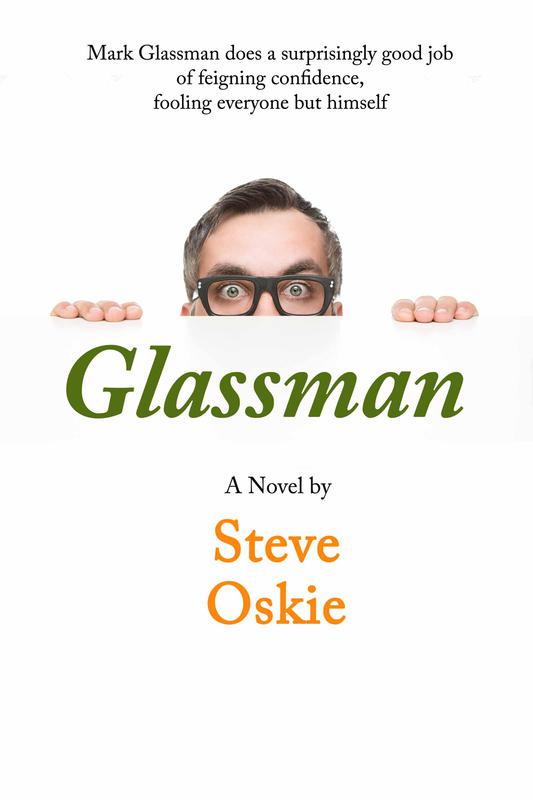Mark Glassman is in a bind. While a serial purveyor of drop-dead dread, he assures his first person narration is made only sweeter by injecting a dark delight in his depiction of an assuredly fraught condition:
Sexual anxiety.
Mark has it in spades. Written by Steve Oskie, of ghostwriter-to-Jerry Blavat fame in the autobiography “You Only Rock Once,” “Glassman” is a late 1970s/early 80s coming-of-age tale of this peculiar affliction—its manifestations, possible causes, and oddly comical side effects. The reader can’t help but not feel superior to Mark since Oskie hits on a number of universal truths in his exploration of a subject that in lesser hands would have provoked a “Hey, what the hell do I have to learn from this character?” reaction.
Sparked by the painful divorce of his Jewish parents and relayed through Glassman’s resultant rebellion against nearly any and all parental expectations, Oskie isn’t shy about the sheer volume of punch lines as he carves a portrait of a perpetual worry wart. His unwillingness to forfeit sarcasm in no way impairs the ability of serious psychological insight to stand alongside the guffaws that recall Woody Allen and Bruce Jay Friedman. The humor can be unsavory, the drama terse. Yet they reside in a meaty coexistence. The novel’s handling of family dynamics often hits a raw nerve:
“There were other connections to my dad as well, in addition to doing my paperwork on Sundays. My aversion to following in his footsteps had softened considerably, and I actually went out of my way to identify similarities that increased my fondness for him. He had spent the better part of his life climbing in and out of cars, showing his wares in a succession of rinky-dink towns, and depending on his powers of persuasion. Ultimately, he was at the mercy of the decision-makers, as salesmen have been since the beginning of time, and it required a marketable product. But without a certain toughness, a thick skin, and a lively personality, it would have been hard to sell anything. Once I realized that I was getting to know him better by following in his footsteps, the act of selling took on a filial importance. Before long, instead of being defensive about it, I gained a sense of pride from my success as a salesman and the connection to my father, and I started to look for additional similarities between us since the first few I identified were so pleasurable to me. I even found my way to the discovery that my left arm had a darker tan than my right after resting it on the open car window while driving. My father’s arm had been the same way for as long as I could remember.”

But serious analysis is careful to give way to lighter passages like this excursion on an ambivalent encounter with celebrity:
“I experienced the profound confusion of whether I should have sex with a man’s sister or ask him for his autograph.”
Before long Teresa—a free-spirited enchantress who will be remembered long after finishing this novel—becomes the center of what can only be described as a bizarre love triangle. Here’s she is examined through a keen discerning lens in this passage regarding her mom, Lorraine:
“Lorraine’s love for Teresa was a dotted line and men like me were given the task of filling in the blanks.”
Mark Glassman’s calling card, his go-to defense mechanism and his eventual Achilles heel, is none other than sarcasm—a blistering quick wit that both soothes him through rough spots and undermines him. Relayed through enough often fascinating female characters that it was tempting to grab a notepad to keep track, Glassman not so subtly upends any stereotypes one may wish to hold onto about a man afraid of sex. The nonnormative performance anxiety put on view by Mark Glassman spews forth a bottomless bounty of black humor and equally dark insights while still holding forth a benign view of the simplicity inherent in redemption.
“Glassman” is published by Open Books and is available on May 23, 2023.
